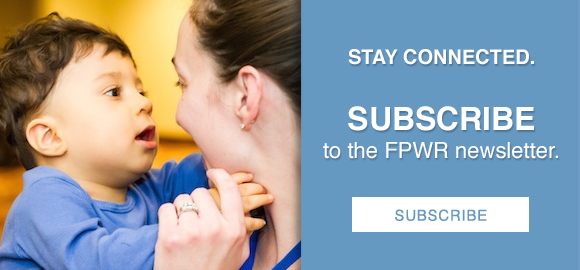We are pleased to announce the recipients of our first round of grants for 2024, totaling more than $1,000,000 in awards, as part of the Foundation for Prader-Willi Research's (FPWR) ongoing commitment to advancing research in Prader-Willi (PWS) and Schaaf-Yang (SYS) syndromes. These grants support critical investigations into PWS and SYS-related topics, providing valuable insights and driving the development of potential therapies and interventions.
Dr. Theresa Strong recently provided an update on ongoing research activities, new outcomes from the FPWR grant program, and a brief description of each of our 9 newly funded projects in the recorded presentation below.
FPWR PWS Research Grant Recipients, Spring 2024
- The role of lateral septum neurons in the pathogenesis of Prader-Willi syndrome. Estefania Azevedo, Medical University of South Carolina. Dr. Azevedo is interested in a particular set of neurons (the lateral septum, LS, neurons) in the brain that express the PWS-region gene, MAGEL2, since these neurons may be important in controlling feeding behavior. Here, she will investigate whether LS neurons behave differently in PWS mice compared to ‘wild-type mice’, potentially identifying a new neural circuit that can be targeted for therapy.
- Molecular underpinnings of Prader-Willi syndrome. Gordon Carmichael, University of Connecticut (year 2). Dr. Carmichael has been investigating the changes in gene expression of PWS cells lacking SNORD116 genes compared to typical cells and has identified a set of 40 genes that are differentially expressed. In year 2 they will further characterize these genes and their role in PWS and will examine how SNORD116 controls their expression.
- Obsessive-compulsive and psychotic-like behaviors across PWS subtypes: Developmental considerations. David Evans, Bucknell University. Dr. Evans has previously developed a well-validated measure of rigidity and obsessive-compulsive behaviors, as well as behaviors associated with psychosis. Here, he will work with the Global PWS Registry team to recruit families to complete these assessments three times over a year and see if they are well-suited for the PWS population. These studies are expected to help identify those at highest risk for challenging behaviors, using a well characterized assessment.
- Cross-cultural adaptation and validation of the Food Attentional Bias Task (FAB-Task) as a potential biomarker for PWS. Louise Gallagher, Hospital for Sick Children, Toronto (year 2). Dr. Gallagher and team have been testing whether ‘eye tracking’ can be used as an unbiased way to assess food interest/hyperphagia in PWS. Initial studies were promising, and here they will test the reproducibility of their initial studies, which were done in Ireland, and see if the results hold in US and Canadian PWS participants. Cultural adaptation of food choices will be incorporated into the tests to validate the approach.
- Defining isoform diversity conserved in the brain and blood, related to the severity of Prader-Willi syndrome. David Godler Murdoch Children’s Research Institute. Dr. Godler has been investigating cell-specific changes in gene expression in blood and brain tissue samples from individuals with PWS, with the goal of developing blood-based biomarkers of PWS severity. Here his collaborative will apply newer technologies to look at genes and proteins that are differentially expressed in PWS and use that knowledge to query databases to identify drugs that may be ‘repurposed’ to treat PWS.
- In vivo implementation of hypothalamus-specific exosomes to reverse the impact of Snord116 deletion.Richard Lee, Johns Hopkins University School of Medicine (year 2). Dr. Lee and colleagues have been investigating the use of exosomes (small vesicles released from cells) to carry PWS genes to the hypothalamus in PWS mouse models, as a first step to gene therapy for PWS. Here they will use their engineered exosomes to test whether delivery of the PWS genes can reverse the PWS features seen in the mice.
- Prefrontal cortex glutamatergic neurons as a target for metabolic and cognitive symptoms in a mouse model of PWS. Rachel Ross, Albert Einstein College of Medicine (year 2). Dr. Ross has been investigating a particular region of the brain (medial prefrontal cortex) and class of neurons in PWS mice, to understand their link to cognitive and metabolic changes in PWS. They will determine whether stimulating these neural circuits in the brains of PWS mice reduces food intake and improves learning, potentially identifying a subset of cells that need to be targeted for therapeutics.
- Non-coding RNAs in neuronal differentiation and PWS. David Tollervey, University of Edinburgh (year 2). Dr. Tollervey is an expert in snoRNA biology. He has been investigating the snoRNAs in the PWS region and has found that loss of the SNORD116 genes alters neuronal maturation in PWS cells). In year 2, they will use specialized techniques to identify the RNAs and proteins that interact with the PWS-region snoRNAs and will use this information to investigate approaches to activate the PWS genes on the maternally inherited chromosome 15.
- Spatial Molecular Imaging of the Human PWS Hypothalamus. Gina Yosten, St. Louis University. Dr. Yosten is using a combined spatial imaging approach to perform a detailed analysis of the proteins and genes found in hypothalamus of individuals with PWS, in comparison to typical individuals. They will build a data-sharing platform that can be used by the entire scientific community to analyze gene and protein differences in PWS brain samples.








